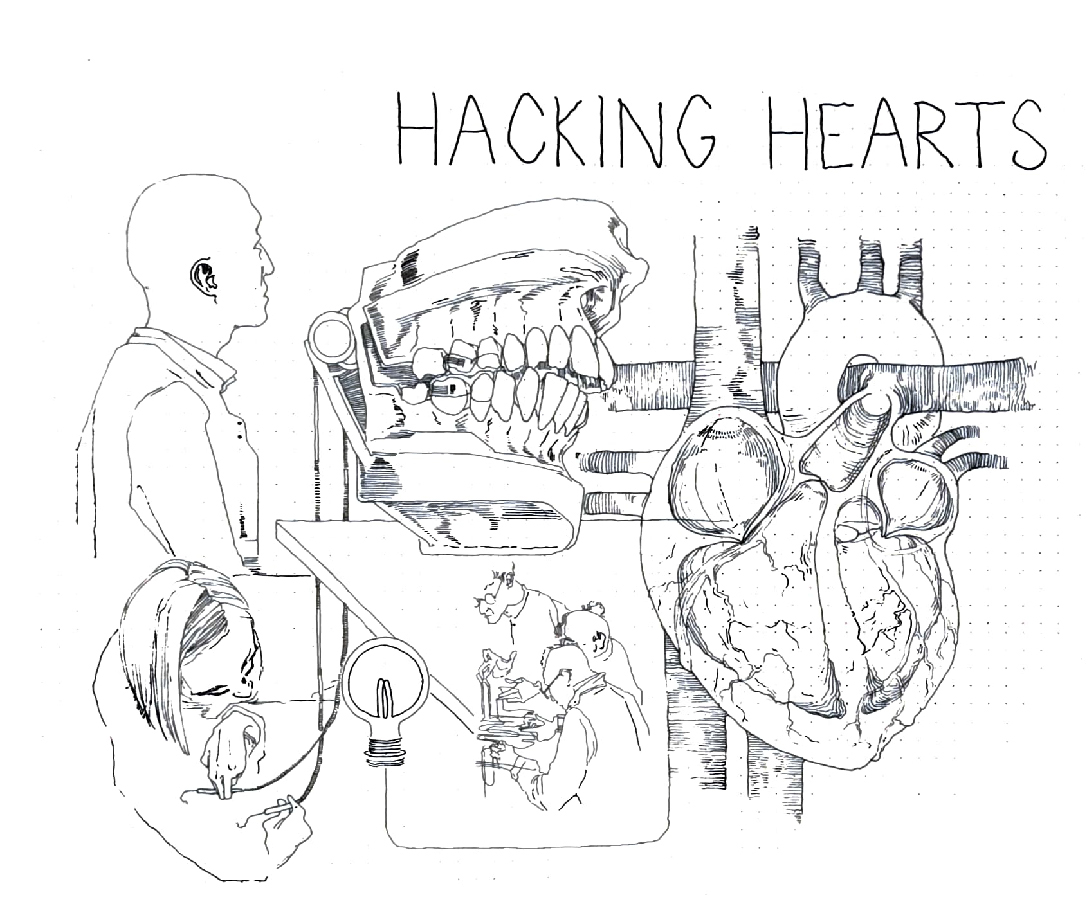【下記の日本語訳をご参照ください】
Hacking Hearts was an exciting experimental project designed to interrogate and reimagine contemporary scientific research centered on heart disease, energy harvesting and cellular sensing. The activities resulted from the collaboration between Tokyo Institute of Technology and two British universities: Central Saint Martins College (CSM) at the University of the Arts London (UAL) and Queen Mary University of London.

The event was held on 4-8 November 2019 at the Grow Lab at UAL, in the UK. Bioengineering scientists presented their research to a team of art students, worked together for a few days and on the last day the students performed their original responses in a public symposium. A series of “creative translation processes” were employed in the deconstruction and reconstruction of cutting-edge mechanical engineering and biotechnology information through art and design practices. As Social Scientist in Residence at UAL, Prof. Nohara observed and analyzed communications and interactions among all the participants during the workshop and how arguments in science and engineering were translated, reworded and re-expressed for a team of art and design graduate students. The project team included Dr. Heather Barnett, Dr. Ulrike Oberlac and Dr. Betti Marenko of UAL, Dr. Wataru Hijikata of Tokyo Tech, and Dr. Thomas Iscratch of Queen Mary University.
The 5-day program included a range of activities which ended with a public participatory event on Nov 8th:
- Nov 4th: Introduction and scientific presentations / demonstrations
- Nov 5th: Practical activities / discussions to unpack the science and start ‘hacking’
- Nov 6th-7th: Students work in small groups to develop ideas in critical / creative response to the scientific research.
- Nov 8th: Presentation of outcomes to the visiting researchers + public symposium in the evening.
The international research team will continue to develop methods to combine different skills and ways of thinking to acquire fresh perspectives and ideas through communication using various tools, collectively called Communication-Driven Hybrid Method. Over 5 days of activities and discussions, the participants of Hacking Hearts explored techniques to share knowledge across disciplines and understanding each other beyond cultural borders. The project produced in-depth reflections and lessons learned which will inform future participation between science & technology and art & design practitioners. Interviews with participants and conclusions drawn from the event are discussed in more details in this article.
More information on the event program can be found on UAL’s website.

「Hacking Hearts」は、心臓病、環境発電、細胞センシングを中心とした現代の科学研究を調査し、再考するために計画された刺激的な実験プロジェクトです。この活動は、東京工業大学と、ロンドン芸術大学(UAL)のセントラル・セント・マーチンズカレッジ(CSM)とロンドンのクイーンメアリー大学のコラボレーションから生まれました。
このイベントは、2019年11月4〜8日に英国のUALのGrow Labで開催されました。バイオエンジニアリングの科学者は、芸術の学生のチームに研究を発表し、数日間一緒に働き、最終日には学生が公開シンポジウムで独自の発表をしました。
5日間のプログラムには、さまざまな活動が含まれていました。
- 11月4日:イントロダクションと科学のプレゼンテーション/デモンストレーション
- 11月5日:科学を解き放ち、「ハッキング」を開始するための実践的な活動/ディスカッション
- 11月6日〜7日:グループワーク、科学的研究に対する批判的/創造的な反応のアイデアの開発
- 11月8日:研究者の成果発表、公開シンポジウム
イベントプログラムの詳細については:UALのウェブサイト (https://www.arts.ac.uk/__data/assets/pdf_file/0020/185033/HackingHearts_student_brief1.pdf) から。